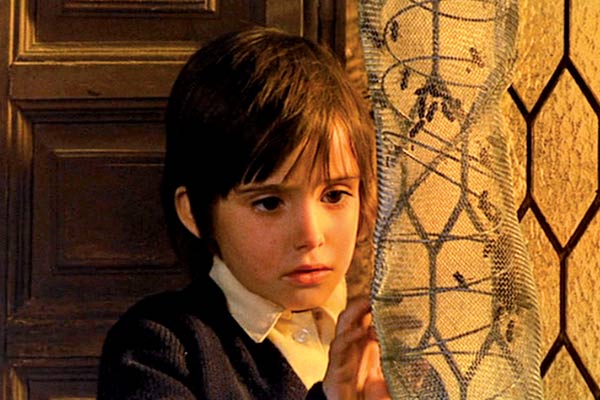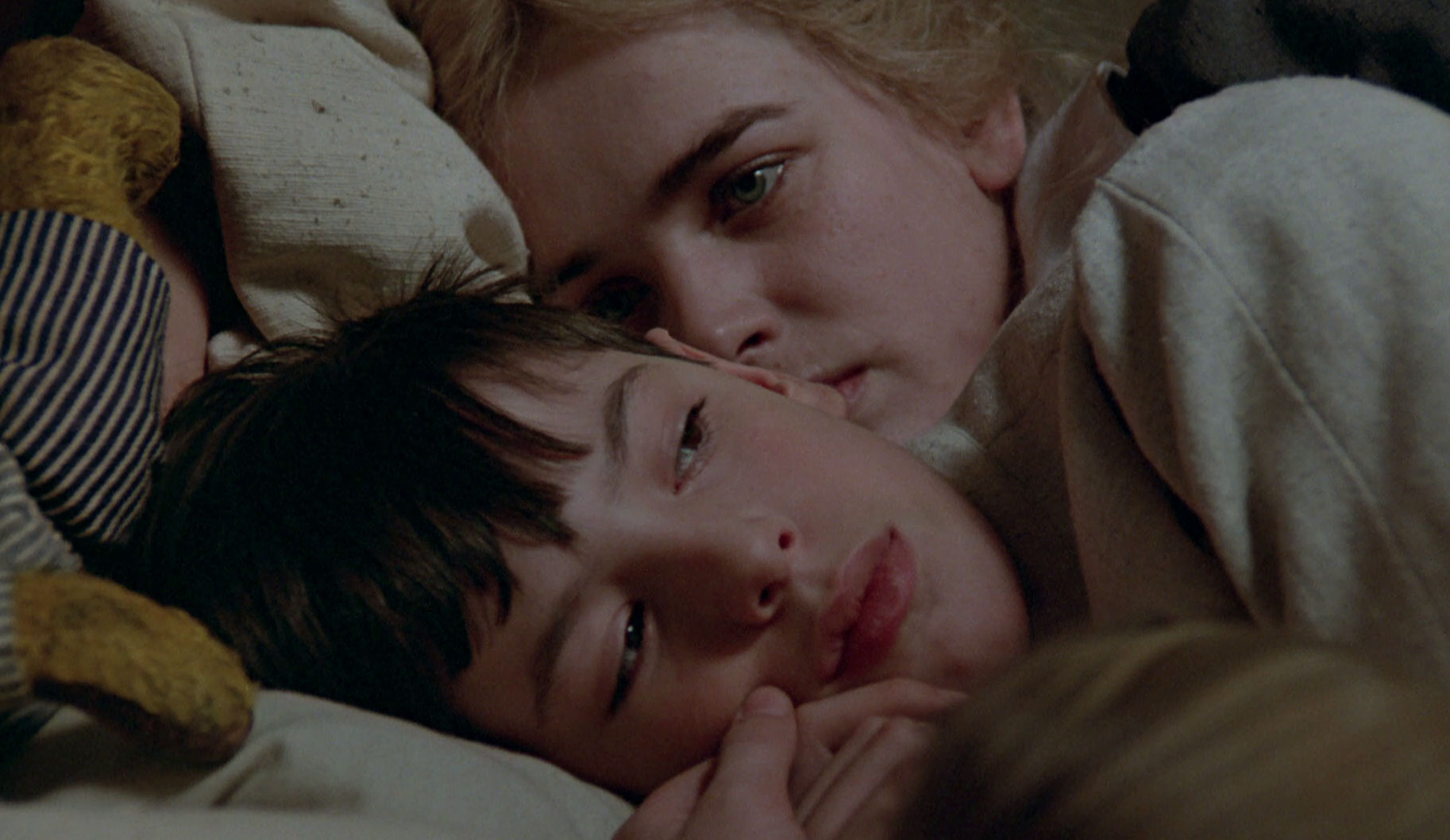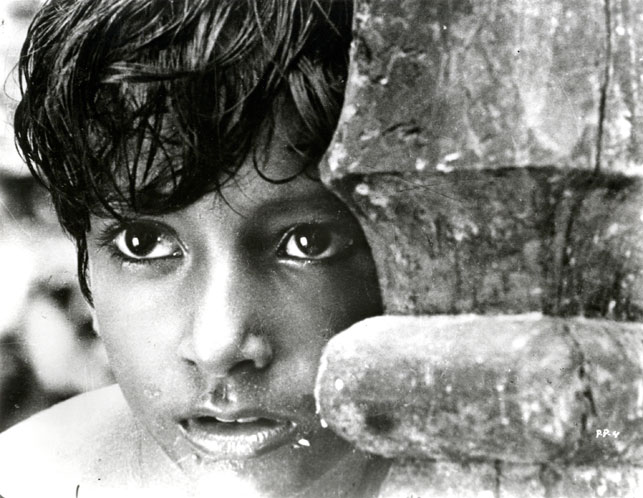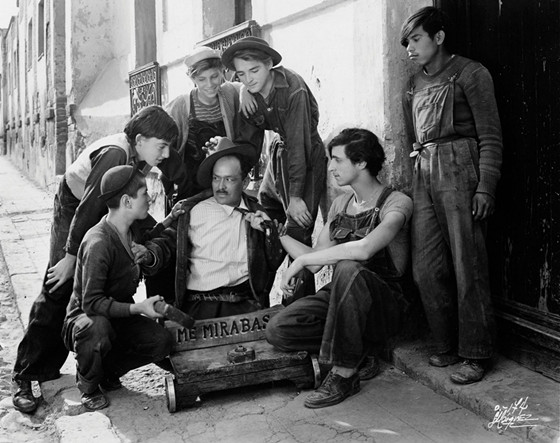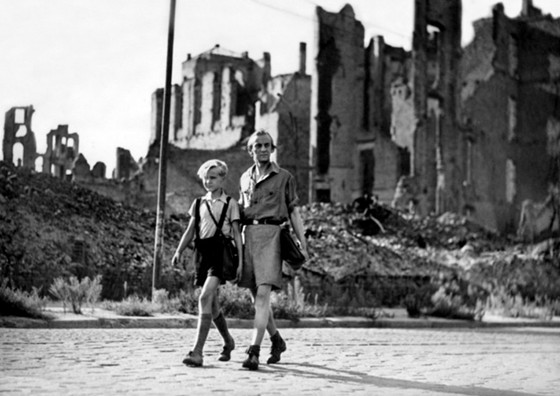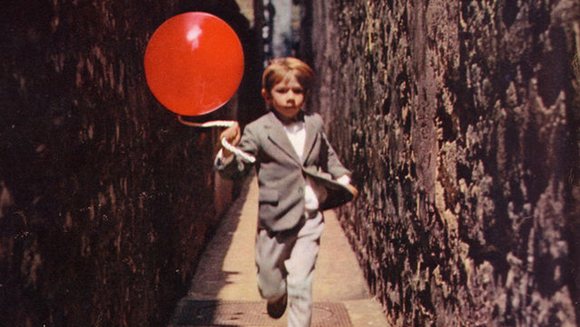8. El espiritu de la colmena (Dir. Victor Erice, 1973)
Ana (Ana Torrent) lives in a small village that is showing Frankenstein for the first time. While Ana wonders endlessly about the monster’s intentions, she stumbles upon a wounded revolutionary soldier who is hiding in a barn. The soldier’s death at the hands of the Francoist police, and Ana’s father’s (Fernando Fernán Gómez) anger over the situation lead to a strange hallucination in which Ana meets Frankenstein’s monster in the woods.
Erice’s film is not only a subtle examination of Franco’s power, but it also introduced the world to Ana Torrent, a dark-eyed child whose powerful gaze represented both an inquisitive youth and a rebellious spirit. Ana examines the world through an escapist fantasy, which takes her away from the realities of war. She represents the innocent generation of Spain that was unaware of Franco’s power and oppression.
7. Fanny och Alexander (Dir. Ingmar Bergman, 1982)
Bergman’s Fanny och Alexander (Fanny and Alexander) tells the story of Alexander (Bertil Guve), a young boy who is obsessed with his magic lantern. When his father (Allan Edwall) dies, Alexander’s mother (Ewa Fröling) marries an oppressive bishop (Jan Malmsjö) who tortures Alexander and his sister Fanny (Pernilla Allwin) with cruel punishments.
Bergman’s autobiographical story is told with such careful attention to detail. It looks at themes of existentialism, religion, and death through a child’s innocent gaze, which is hardened by an abusive adult. Alexander is used to examine Bergman’s own perspective on life, creating an alter ego that is similar in spirit to Truffaut’s Antoine Doinel.
6. Pather Panchali (Dir. Satyajit Ray, 1955)
Pather Panchali (Song of the Little Road) is the first installment in Satyajit Ray’s much-loved Apu Trilogy. The film follows Apu’s (Subir Banerjee) family as they deal with poverty and harsh conditions. Ray’s realist style (influenced heavily by Italian neorealism) doesn’t spare any punches in showing the emotionally draining events that the family faces. It is a remarkable debut by an influential director, who (much like Truffaut did with Antoine Doinel) would follow Apu into a disillusioned adulthood.
5. Los olvidados (Dir. Luis Buñuel, 1950)
Pedro (Alfonso Mejía) is trying to better himself, but the antics of El Jaibo (Roberto Cobo) – who was just released from juvenile detention – affect Pedro’s relationships to his mother and his boss. Pedro is eventually sent to juvenile detention, and though he finally finds a way to become a better person, El Jaibo still manages to creep back into his life.
Buñuel’s scathing examination of impoverished Mexican children doesn’t look at them through a sympathetic lens, but examines them on equal footing with other corrupt individuals. Buñuel believed that every person was capable of evil, no matter what his/her situation was. The children are no exception, and each child tries to survive his/her hardships the best way that he/she can.
4. Deutchland im jahre null (Dir. Roberto Rossellini, 1948)
Edmond Kohler (Edmund Moeschke) lives in postwar Berlin where he provides for his family by taking any odd job he can get, but the child grows disillusioned due to the constant presence of death and destruction. Like many radical/modernist films, Deutchland im jahre null (Germany Year Zero) is told from the unique perspective of a social outcast (in this case, a child) in order to create an image of social, cultural, and political injustices. It is a film about survival of the fittest, and Edmund must adapt in order to survive the harsh environment, or commit suicide.
3. Les 400 coups (Dir. François Truffaut, 1959)
Antoine Doinel (Jean-Pierre Léaud) is a rebellious child who cannot conform to societal expectations. He is terrible in class, acts out against his parents, and steals whenever possible. His behavior takes a toll on his parents, and he is eventually thrown into a juvenile detention center, where he faces an unknown future.
Truffaut’s semi-autobiographical film helped launch the French New Wave, creating an iconic character whose perspective was unique in international cinema. Doinel is not a bad character, but similar to Truffaut’s own childhood, he is misunderstood. Truffaut created an intriguing character, one who has influenced countless films over the years.
2. La balloon rouge (Dir. Albert Lamorisse, 1956)
Pascal (Pascal Lamorisse) finds a red balloon tied to a streetlight. When he takes it home, he discovers that the balloon has a mind of its own. The two form an immediate friendship, but a group of rambunctious children try to take Pascal’s happiness away. The children succeed by popping the balloon, leaving Pascal to grieve over the remains of his best friend. Yet Pascal’s mourning is only momentary as all the balloons in Paris come to his aid and whisk him away.
Lamorisse’s Oscar-winning screenplay is truly wonderful. It barely uses any dialogue, but it still manages to convey a wonderful relationship between the boy and his balloon. Some critics argue that the film is an escapist fantasy, while others adore the talents of Albert and Pascal Lamorisse. I fall into the latter camp because the story and execution are so charming that I can’t help but fall in love with this fantastic film.
1. Zéro de conduite (Dir. Jean Vigo, 1933)
Jean Vigo’s Zéro de conduite (Zero for Conduct) is a provocative short that follows a group of schoolboys who lead a rebellion against their teachers. Its premiere was shocking to French audiences, but its legacy impacted many films (including Truffaut’s The 400 Blows). Like most of the films listed here, Zero for Conduct is an unromantic view of childhood, examining mischievous children through a unique perspective of empathy and compassion. You will never forget their antics, nor will you forget their slow motion pillow fight.
Author Bio: Jose Gallegos is an aspiring filmmaker with a B.A. in Film Production/French from USC and an M.A. in Cinema, Media Studies from UCLA. His main interests are the French New Wave, Left Bank Cinema, and Spanish Cinema under Franco. You can read his film reviews at nextprojection.com and view his film poster collections at discreetcharmsandobscureobjects.blogspot.com.
